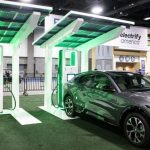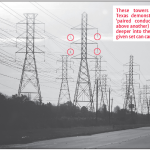By Dexter Liu
‘Thermal runaway’ is a dangerous condition unique to lithium-ion batteries. Overheating can end up in a catastrophic fire.
“Battery fires, what consumers should know,” a Forbes article published September 16, 2021, revealed that while the EV manufacturers’ claims of limited inventory were due to chip shortages and supply chain problems, GM actually recalled more than 140,000 Chevy Volts due to the risk of battery fires. They’re not alone! Hyundai recalled 90,000 vehicles earlier, and Ford took back 20,000 of their electric plug-in hybrids in Europe because they could overheat and catch fire. Tesla, the EV leader is not immune and has likewise been linked to catastrophic battery fires.
Fires caused by overheating lithium-ion batteries are not new. On Oct. 15, 2016, the FAA banned the use and transportation of Samsung’s popular Galaxy Note 7 phones on all flights due to numerous incidents of spontaneous combustion. And then there is the more recent catastrophic event involving the sinking of the Panama registered Falicty Ace, a 60,000 ton cargo ship transporting 4,000 luxury cars (including a large number of electric vehicles) across the Atlantic. It caught fire and sank off the coast of Portugal.
The salvage company, tasked with rescue and recovery, failed to save the ship. While not conclusive, many familiar with the fire cited the cargo of EVs as contributing to the intensity of the blaze, as burning lithium-ion batteries are difficult to extinguish. While these failures are rare, they do suggest that the lithium-ion battery technology – while ubiquitous – does present a real and serious danger to the public.
It’s one thing when a cellphone battery has a thermal runaway event. It’s quite another if you and your family are sitting on top of a thousand-pound lithium-ion battery when traveling down the highway!Sure, a thermal runaway episode is a small risk, but should you take that chance?
We shut the country down due to the risks of a virus that had a 99 percent survival rate, so how much risk is too much risk?
There’s no question that with time and enough resources most of these problems with the current state of the electric car industry will be resolved. For example, the industry is currently working on alternative EV battery designs that look promising such as aluminum-ion which has yet to be successfully commercialized.
But it’s simply foolish not to question the wisdom of forcing the entire world to go electric with transportation when it is clear the contemporary fossil fuel solutions that evolved over many decades (including the existing fueling station infrastructure) offer demonstrably superior solutions in transportation compared to where the electric car is at the present time.
It is inexplicable why so many continually push the EV future as the sole solution, indeed in some cases mandating its adoption when it’s clear more work is necessary to overcome the serious issues that plague the EV industry. The inconveniences of long charging times cannot compare to traditional gas-and-go cars. The claims of less maintenance because of the simplicity of the electric power plant is grossly off set by the high cost of battery replacement and disposal. Plus one must not turn a blind eye against the human costs of the EV supply chain for there is real human suffering behind bringing us these EVs.
And then there’s the Thermal Runaway hazard, which is very real albeit rare, but is simply too glaring a problem to ignore. The pro-EV climate is particularly egregious as we’re being subjected to overwhelming social pressures driven by powerful political alliances between Big Government, Big Tech, and Big Media. EV adoption is rewarded while gas powered loyalists are punished in an effort to force society to abandon its petroleum past in favor of an all-electric future ostensibly to save the planet from the alleged deleterious effects of fossil fuels.
However, considering all the facts, the EV future they want us to embrace simply isn’t quite ready for prime time.
Related posts:

Dexter is a frequent contributor to the County Compass.



















































